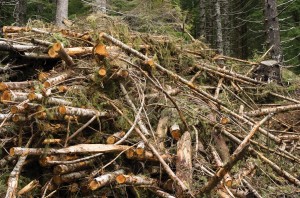7 item(s) were returned.
Last Monday, Scott Pruitt announced that the Environmental Protection Agency will now consider the burning of biomass for energy to be carbon neutral. The agency memo points out that the use of biomass for energy can bolster domestic energy production, reduce wildfire risk, and help ensure that forests continue to remove carbon from the atmosphere. The memo further states that “Managed forests improve air and water quality while creating valuable jobs and thousands of products that improve our daily lives.” Despite the ruling, the debate continues over the carbon neutrality of biomass. Scientists and various non-governmental organizations have raised concerns… [more]
View InsightCo-Executive Director
The Institute for Carbon Removal Law and Policy, American University
The Paris Agreement establishes the objective of “[h]olding the increase in the global average temperature to well below 2°C above pre-industrial levels and to pursue efforts to limit the temperature increase to 1.5°C above pre-industrial levels . . .” However, in the negotiations leading up to Paris, and in its aftermath, it has become increasingly obvious that meeting even the less stringent of these two goals may prove extremely daunting. As a result, new technologies and alternative methods of generation, such as bioenergy, are receiving increased attention. Policymakers and climate scientists believe the only way to avoid passing critical climatic… [more]
View InsightThe Senate recently passed the bipartisan Energy Policy Modernization Act (S.2012) cosponsored by Senators Murkowski and Cantwell. One aspect of the bill that is creating controversy revolves around provisions characterizing biomass as a renewable, carbon-neutral energy source. This new, definitive characterization has sparked significant disagreement. Proponents argue that the carbon emitted is part of a closed-loop system through which plant regrowth captures CO2 emissions. The Biomass Thermal Energy Council expressed its support of the carbon-neutral designation in the legislation, indicating that the bill puts “clean, highly efficient energy from biomass on a better footing to contribute to our country’s renewable… [more]
View InsightPolicy Associate
EESI
Although the administration’s finalized Clean Power Plan was released in early August, EPA is still actively grappling with the rules regarding biomass feedstocks as a compliance option under the Plan. Biomass (or biogenic) feedstocks include wastes such as organic wastes, lumber, pulp and paper industry wastes, agricultural residues and purpose-grown feedstocks. Solid biomass can be co-fired with coal in existing plants or used in renewable heating applications. The biomass industry argues that the utilization of biomass as an electricity source is an attractive option for states as it has the potential to sequester carbon as additional feedstocks are grown, it… [more]
View InsightSenate Energy & Natural Resources Chairman Jeff Bingaman (D-NM) has introduced the Clean Energy Standard Act of 2012, which would require electric utilities to derive increasing percentages of their supply mix from low-CO2 sources. The bill would take effect in 2015, and would require that by 2035 84% of power from large utilities come from low-CO2 sources. Sources eligible under the legislation include: renewables, such as wind and solar, “qualified” renewable biomass and waste-to-energy, hydropower, natural gas, and nuclear. Facilities with CO2 capture and storage, and some combined heat and power facilities, are also eligible. The bill establishes a market-based… [more]
View Insight[Note: The statements below are intended solely to stimulate discussion among the Expert community, and do not represent the position of OurEnergyPolicy.org. Text in italics indicates clarification or expansion.] US electricity generation should be based on the following sources: Hydroelectric — part of the stable supply base — not expected to grow. Large hydro capacity may shrink due to reservoir siltation, water shortages, and dam removal. Coal — part of the stable supply base — is domestically abundant. Currently, the cheapest but most carbon intensive solution. Growth rate depends on friendlier GHG technologies (like IGCC and CCS). The main… [more]
View Insight[Note: The statements below are intended solely to stimulate discussion among the Expert community, and do not represent the position of OurEnergyPolicy.org. Text in italics indicates clarification or expansion.] Substantially increase government support for research designed to directly replace oil. Up until now most government research grants in the area of energy went to traditional fossil fuels. The significantly smaller grants for alternative energy have been largely directed to global warming issues. Although we strongly recommend increasing the research grants for global warming solutions, it is critical for the survival of the U.S. and world as a free one… [more]
View Insight


